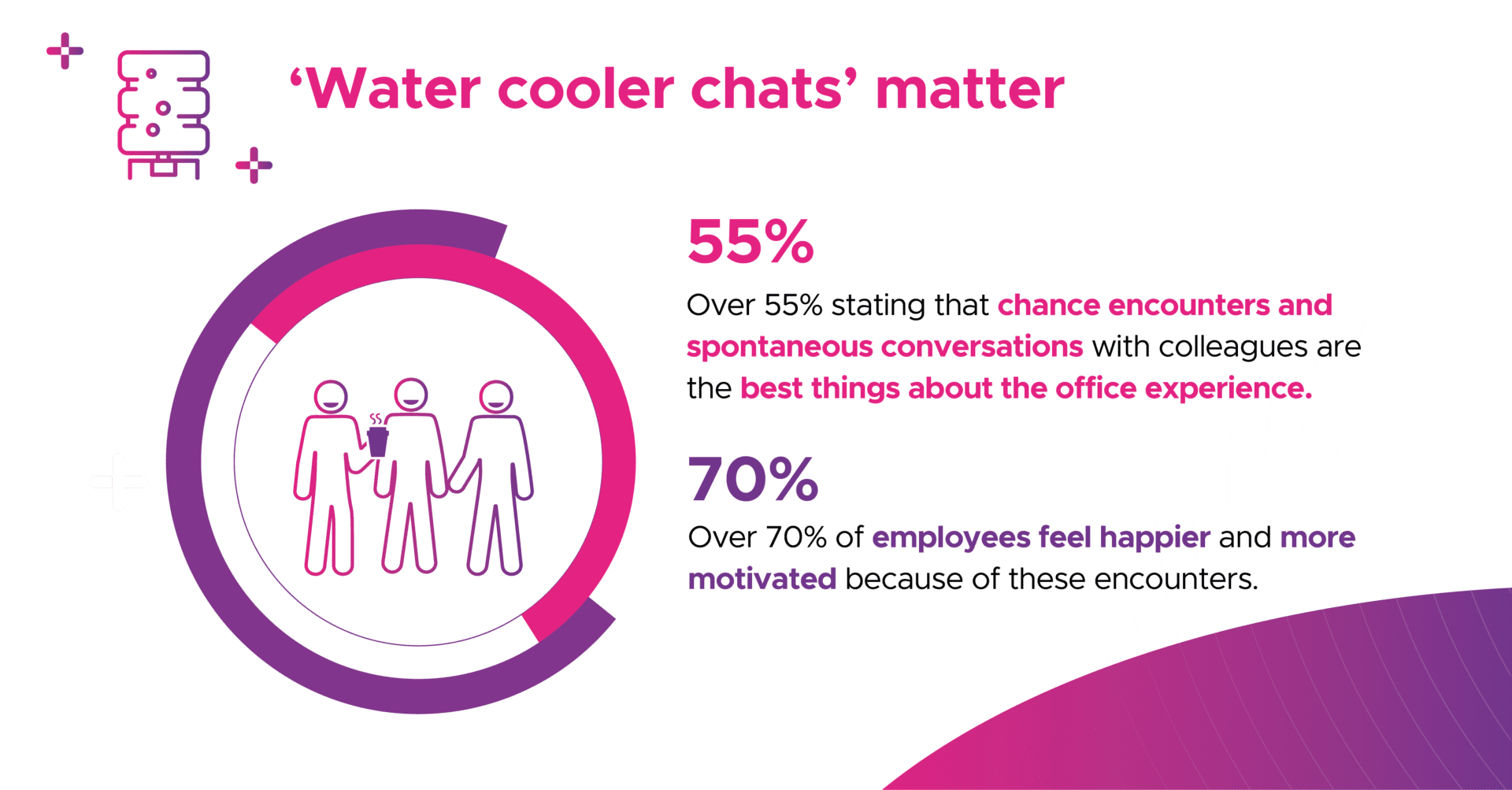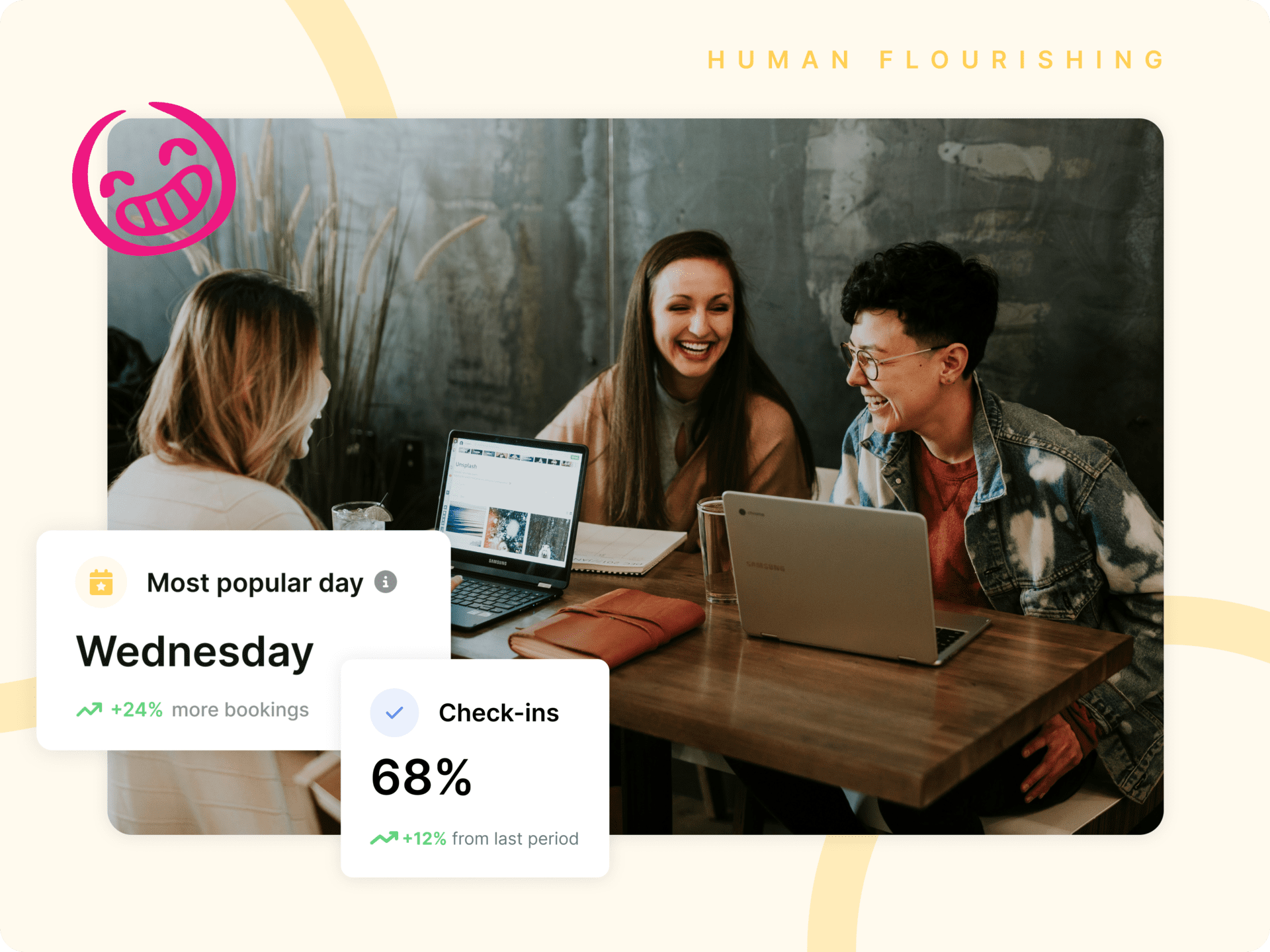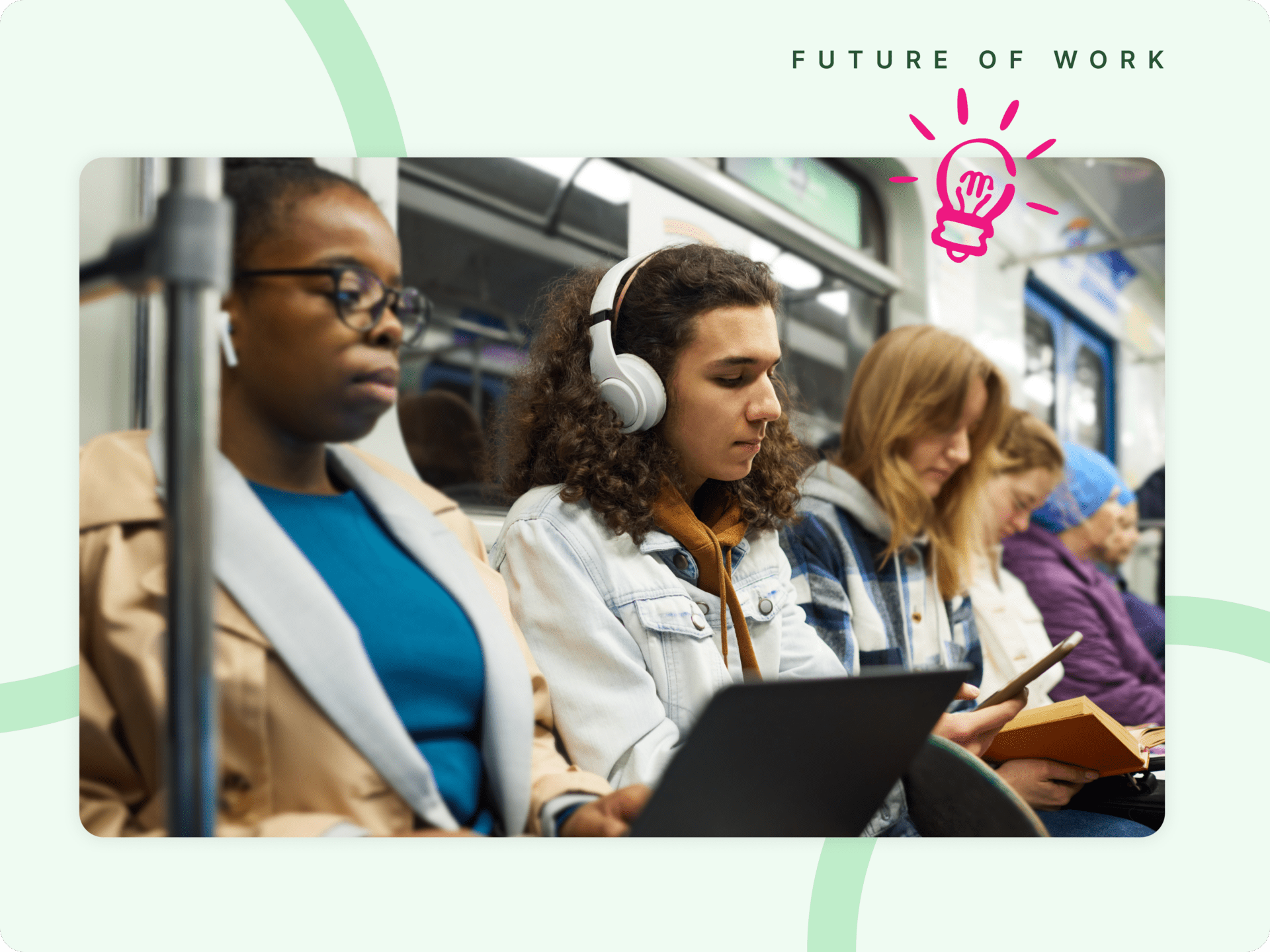Office Manager’s Quest for the Perfect Desk Booking Solution
Two years ago, your company had a fixed office space. Like many, it required employees to spend most, if not all of their workdays on-site.
You didn’t have desk booking software in place. You didn’t really need one.
Everyone had a fixed workspace and Outlook and Google Calendar worked just fine for meeting room bookings. Sure, it could be taxing to administer and there were the occasional issues of zombie bookings and people taking the room without checking the bookings calendar first.
But you wrote it off as part of the office life. Then it all changed in a matter of days.
The shift to home working as necessity not choice
As the Covid-19 pandemic hit, everyone suddenly had to adjust to working from home full-time. You had to find the online alternative to meetings, shared and sensitive documents, collaboration, and daily routines. It wasn’t easy, but you conquered that mountain. And just as you thought you knew what was coming next, everything changed again.
Now the company has decided to create a flexible, people-first hybrid workplace with desk hoteling at the heart of its return-to-work and long-term office management strategy.
When did your job role change to workplace experience manager?
Suddenly, you’re becoming an expert in workplace technology, tasked with finding a trending desk booking solution for the IT and executive team to approve. You’re monitoring the office capacity, manually allocating seating, keeping a register of who’s planning to come in, who was in the office, and who booked a spot but didn’t use it. And you’re combing the internet in search of the perfect desk booking app.
Suddenly, this is where all of your day goes.
You’ve essentially taken on the duties of a workplace experience manager. And it’s not like the rest of your responsibilities went away.
How do you find a solution that works for everyone when, as one PA put it, all of the employees differ in their motivations, generations, culture, personality, and technical skills?
How do you identify the non-negotiable features (apart from the obvious: desk booking and some form of reporting), evaluate which software will benefit the company in the long run, and – on top of it all – get there in a matter of weeks?
Identify the core criteria
Here are seven key considerations that will help facilitate the task of finding the right desk booking software for your company.
1. Start with the outcome you want to achieve
- How will desk booking be administered – centrally or individually?
- What are the main challenges you need to solve: cut the hours spent on daily desk and room management, eliminate zombie bookings and desk squattering, improve safety protocols?
- What are the restrictions you’ll need to implement?
- Will there be set office days?
- What level of reporting will you need?
- What other company goals is it tied to: understanding employee work routines and preferences, optimizing or cutting real estate, ensuring speed and flexibility in change management?
- What integrations will you need?
- What are the minimum security requirements besides two-factor authentication? Include those in your search to speed up internal decision-making.
2. Define employee personas
Survey the staff to build employee personas based on:
- how they coordinate collaboration with others
- when and where they’re the most productive
- how often they want to be in the office
- which work activities it will need to accommodate
- how comfortable they are with adopting new technology
Their answers will help you identify other core features of the solution you need, as well as how best to communicate the change and decide how much training is needed.
3. Look into the future
Here’s something they don’t tell you. When evaluating a potential desk booking solution, take a look at its future roadmap. That’s because it might not be worth sacrificing a well-priced tool your colleagues and management will love when the few missing features you need might be there in a few months.
So, if the demo looks good, ask the sales rep about their future plans.
4. Think safety and peace of mind
Many of the staff are happy about seeing their colleagues again.
Others might suffer from FORTO (fear of returning to the office), worried what hybrid working will look like in practice, how the return might affect their health, and whether they’ll be able to maintain a good work-life balance.
And everyone fears not finding a desk that matches their needs at the time they need it. A solution that offers insights into people’s movements will be of great value.
Space usage analytics can inform your return-to-work policy and understand how staff think and feel about their office environment to make sure the expensive real estate isn’t empty most of the time.
Real-time office views allow you to identify and immediately release zombie bookings while historic space usage data demonstrates:
- how effectively different office areas are utilized
- whether any spaces need to be optimized or repurposed
- which areas are the busiest and at what time. Use this information to forecast demand for spaces and amenities. (Welcome to a whole new era of efficient resource allocation!)
5. Prioritize exceptional UI and UX
If there’s one thing that can ruin a great desk booking solution, it’s user experience (UX).
You can find software that has all the features you need, but if it doesn’t come with great user interface (UI), if it’s cumbersome, complex, or plain annoying to use, if it looks like a trip back to the 1990s, you’ll pay heavily in hours and effort put into driving user adoption, training staff, and explaining – yet again – the choice of the software.
The slower the user adoption, the more data and opportunity for real estate optimization lost. So, make sure the workplace app adds value to the workday and is simple and obvious even for the least tech-savvy to use.
Look for software that:
- prioritizes excellent UX and UI
- offers floor plan views signalling which desks are sanitized and free to book
- indicates the amenities in different rooms and areas to allow the employee to book a space that perfectly matches their needs
- automatically updates the system as you begin to use a workspace and notifies the cleaners once you’re done
- offers seamless integrations with other scheduling tools like Office 365 and Google Workspace
- comes with a mobile app and works seamlessly across devices
6. Facilitate collaboration
In our recent return-to-work survey, we discovered that prior to the pandemic, almost two-thirds of employees (61%) had water cooler chats with colleagues every other day, and 40% expect this trend to continue after they return to the office.
The reason is simple.
These spontaneous interactions make people happier (45%), more creative (32%), and motivated (34%).

In-person meetings are also crucial for productivity, collaboration, and mental wellbeing. A McKinsey executive survey mirrors these findings, with two-thirds of productivity leaders reporting an increase in chance encounters among staff, versus just 9% of productivity laggards. Organizations that support spontaneous interactions have seen the biggest rise in productivity and customer satisfaction.
How does this affect your quest for the right desk booking solution? Look for functionality that focuses on enabling chance encounters:
- short- and long-term bookings
- individual and team cadences (a.k.a. routines)
- real-time view of who’s in, who’s not, who’s reserved a desk and where
- the ability to seamlessly switch between office locations and compare them against each other
Think of it as a healthy work routine on your own terms.
If you wanted to work alongside your team when you come to the office, you could check when and where they’ve booked a desk to make sure your office time is synced.
You could empower entire teams to create their own productivity and networking cadences. No complex calendar synchronization and long email threads necessary.
The best part?
You don’t have to force people to follow a process that may or may not work. With cadences, you’ve given staff the tools to create the perfect workplace experience for themselves and an office that people actually want to return to.
7. Quick and easy setup
Once you find the right desk booking solution, there’s one final step to make sure it works for you: the time and effort it takes to set up.
To avoid any unwanted last minute surprises, check for:
- Directory sync: The last thing you want is to have to go through the employee list and add them to the app one by one. The software should be able to do it for you.
- Single sign-on to ensure frictionless onboarding for the end users
- Time-saving automation features
- Auto desk release that allows you to set a time limit for the checking into the space booked before it’s released to the pool.
- Group desk booking that allows team managers, PAs, and admins to book spaces on behalf of others in their team.
Wondering what it looks like in practice? We’d love to show you – book a demo here



